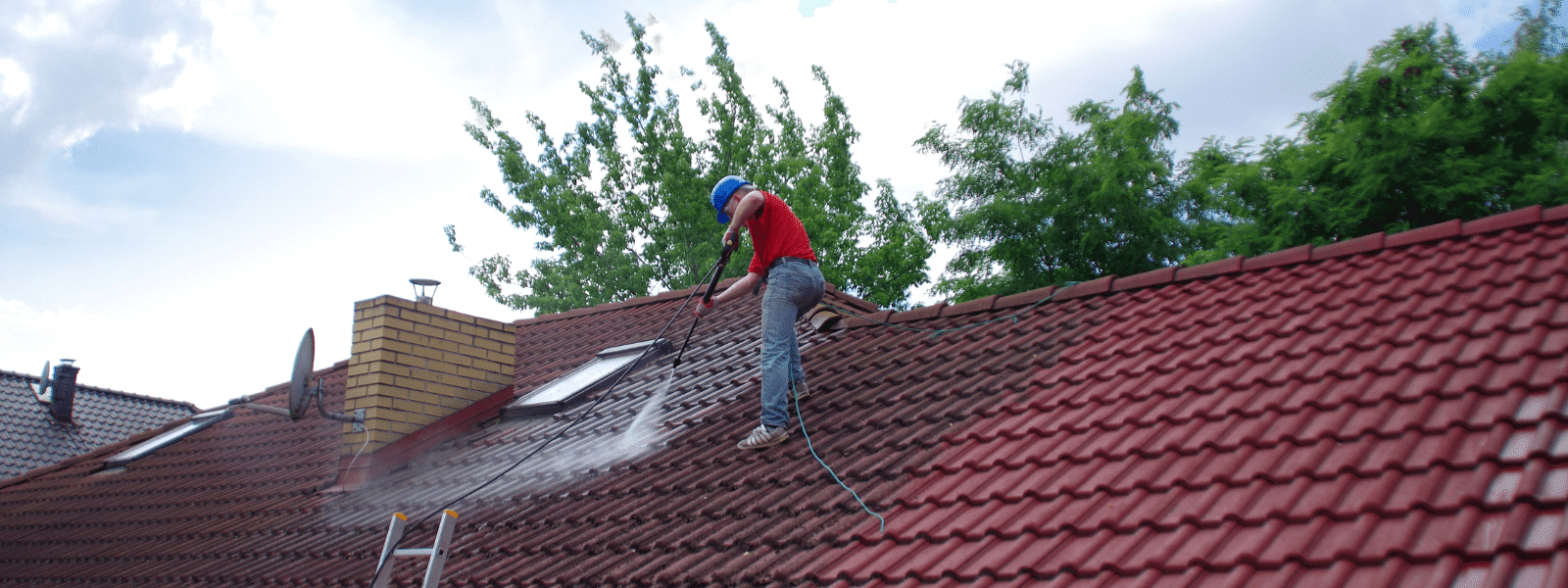Cleaning mold off asphalt shingles doesn’t have to be a difficult process. Read on to learn about the methods and types of cleaning that’ll help your shingles look spotless.
The Importance of Cleaning Asphalt Shingles
Mold thrives in any area that contains moisture, and when mixed with debris buildup, can be unsightly and cause damage to your roof. Exterior damage to your roof can lead to interior damage to your home such as water leaks, pests, and more.
Even if you’ve neglected cleaning your roof, it may not be too late to improve its condition with a regular washing routine—a better alternative to replacing costly shingles and entire roofing if damage were to occur.
When it comes to cleaning shingles, the best cleaning method involves the use of a pressure washer. There are a variety of solutions that can be used in the pressure washing process, some solutions are eco-friendly, while others rely on harsher chemicals such as bleach.
Do I Need Chemicals When Cleaning Asphalt Shingles?
Yes, chemicals are an essential part of the roof washing process. While we may often associate the word “chemicals” with toxic substances, not all chemicals are harmful and when used responsibly, can clean effectively without harming the environment.
For example, bleach solutions contain small amounts of bleach that are great for removing dirt and grime from surfaces. When diluted and combined with other non-toxic solutions, bleach poses little risk to the handler and the surrounding environment if handled properly.
Once you find an eco-friendly roof cleaning solution, you’ll want to use it with your pressure washer to start cleaning the shingles. During this process, you’ll want to make sure you’re wearing the proper protective equipment such as:
- Gloves
- Mask
- Glasses/goggles
- Suitable clothing
- & other protective gear
Depending on the solution that you choose to use, some methods require that solutions be left on the surface for longer than others, affecting the overall length of the process, while some solutions can be rinsed off immediately. Either way, several pass-throughs may be needed if there is excessive mold on the shingles.
Some chemicals that may be used to clean shingles are sodium hypochlorite, hydrogen peroxide, bleach, etc. There are even enhancers depending on what routes are taken to clean shingles!
Need an Eco-Friendly Solution?
Tidal Washers is invested in finding ways to use eco-friendly products that involve fewer chemicals. We for the best solutions that meet your industrial application needs. Looking into pressure washing chemicals and not sure where to begin? We offer products that will enhance your solutions!
Get in contact with one of our chemical experts today! We look forward to assisting you.















